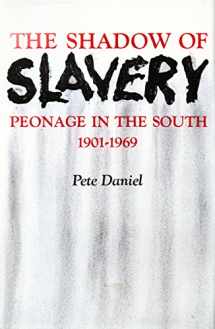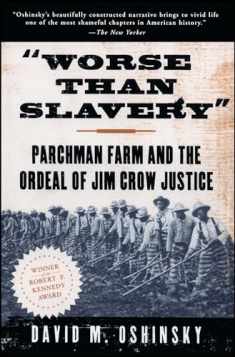
The shadow of slavery: peonage in the South, 1901-1969
Book details
Summary
Description
Whether peonage in the South grew out of slavery, a natural and perhaps unavoidable interlude between bondage and freedom, or whether employers distorted laws and customs to create debt servitude, most Southerners quietly accepted peonage. To the employer it was a way to control laborers; to the peon it was a bewildering system that could not be escaped without risk of imprisonment, beating, or death. Pete Daniel's book is about this largely ignored form of twentieth-century slavery. It is in part "the record of an American failure, the inability of federal, state, and local law-enforcement officers to end peonage." In a series of case studies and histories Daniel re-creates the neglected and frightening world of peonage, demanding, "If a form of slavery yet exists in the United States, as so much evidence suggests, then the relevant questions are why, and by whose irresponsibility?" Peonage grew out of labor settlements following emancipation, when employers forbade croppers to leave plantations because of debt (often less than $30). At the turn of the century the federal government acknowledged that the "labyrinth of local customs and laws" binding men in debt was peonage. They outlawed debt servitude and slowly moved against it, but with no large success. Dis-appearing witnesses and acquitted employers characterized the cases that did go to court. Each year, about fifty complaints still come to the Justice Department, few of which are investigated. Daniel holds that peon-age persists for many reasons: the corruption and apathy of law-enforcement officers, racist traditions in the South, and the impotence of the Justice Department in prosecuting this violation of federal law. He draws extensively on complaints and trial transcripts from the peonage records of the Justice Department. The files since 1946, however, are closed to researchers.
PETE DANIEL is assistant professor of history at the University of Tennessee. He is former assistant editor of the Booker T. Washington Papers. An article from The Shadow of Slavery was published in the April, 1972, issue of American Heritage.


We would LOVE it if you could help us and other readers by reviewing the book
Book review




